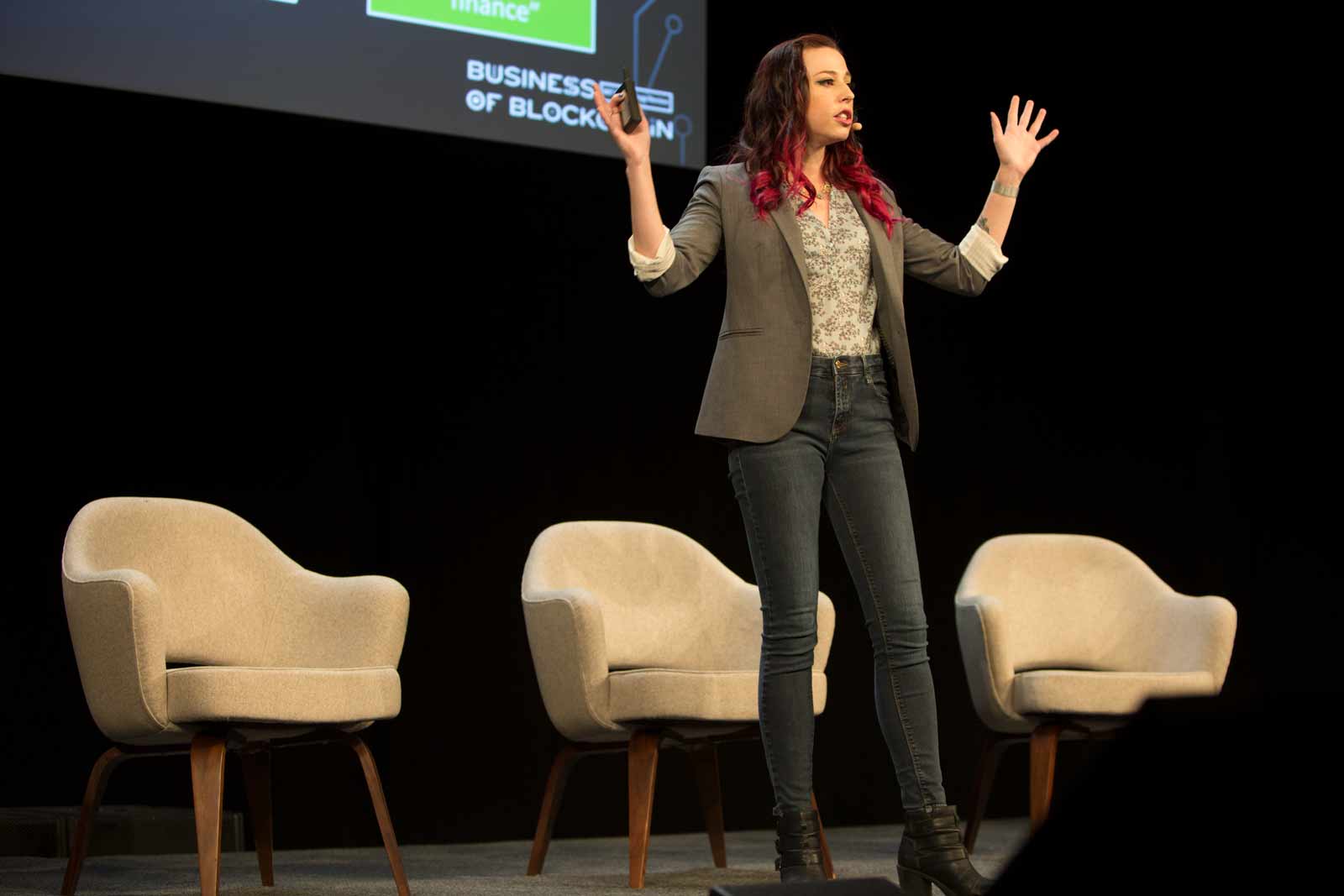The world needs blockchains that blend idealism with pragmatism

Blockchain has no shortage of cheerleaders, but there’s no consensus on how this technology should be deployed to create real, lasting change.
While running the blockchain program for JPMorgan Chase, Amber Baldet got an up-close look at how central bankers, big financial institutions, and cryptocurrency enthusiasts think about the technology’s potential to change global commerce. There were—and are—no shortage of boosters, but actually implementing a better system is a bit trickier.
Speaking onstage today at MIT Technology Review’s Business of Blockchain conference, Baldet outlined how exciting new developments in the field can be balanced to build applications that could very well revolutionize the way transactions work in the digital age. In particular, she described how zero-knowledge proofs, a mind-bending mathematical approach to information privacy, can be integrated into all sorts of business transactions—and explained why everyone from car dealerships to big institutions like banks might want that.
In the end, she said, the idealistic fervor around blockchains is a good thing: the technology itself, as well as the new software layers people are building around blockchains, can indeed change the world. We just need to make sure that when they do, it’s a world we want to live in.
Keep Reading
Most Popular
Large language models can do jaw-dropping things. But nobody knows exactly why.
And that's a problem. Figuring it out is one of the biggest scientific puzzles of our time and a crucial step towards controlling more powerful future models.
The problem with plug-in hybrids? Their drivers.
Plug-in hybrids are often sold as a transition to EVs, but new data from Europe shows we’re still underestimating the emissions they produce.
Google DeepMind’s new generative model makes Super Mario–like games from scratch
Genie learns how to control games by watching hours and hours of video. It could help train next-gen robots too.
How scientists traced a mysterious covid case back to six toilets
When wastewater surveillance turns into a hunt for a single infected individual, the ethics get tricky.
Stay connected
Get the latest updates from
MIT Technology Review
Discover special offers, top stories, upcoming events, and more.